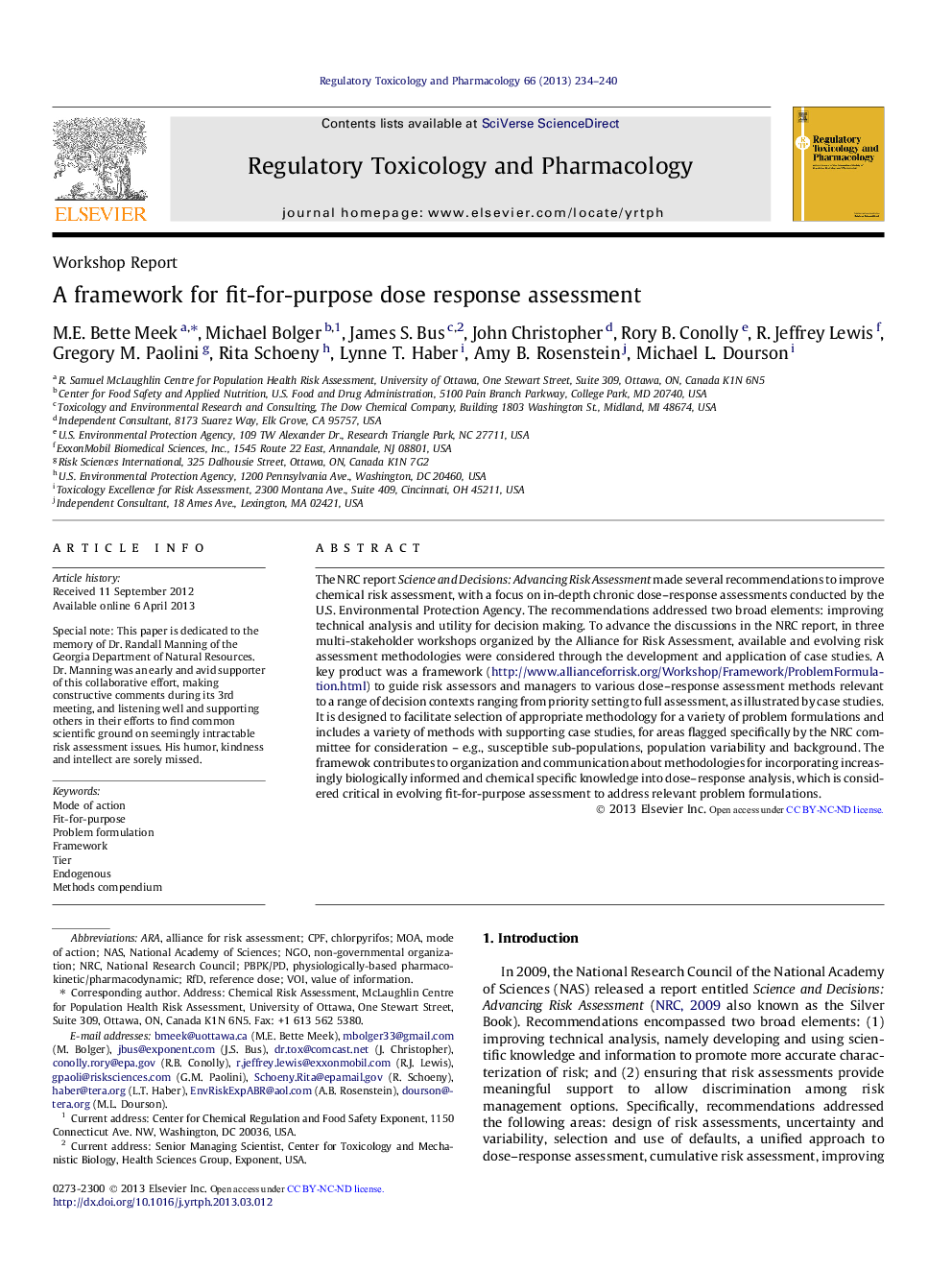| Article ID | Journal | Published Year | Pages | File Type |
|---|---|---|---|---|
| 5857428 | Regulatory Toxicology and Pharmacology | 2013 | 7 Pages |
â¢The workshop series goal was to evolve risk assessment methods through the development and application of case studies.â¢The resulting framework guides risk assessors and managers to a range of dose-response methods.â¢The methods are relevant to a range of decision contexts and are illustrated by case studies.â¢Case studies continue to be added to the framework, and the structure is being enhanced.
The NRC report Science and Decisions: Advancing Risk Assessment made several recommendations to improve chemical risk assessment, with a focus on in-depth chronic dose-response assessments conducted by the U.S. Environmental Protection Agency. The recommendations addressed two broad elements: improving technical analysis and utility for decision making. To advance the discussions in the NRC report, in three multi-stakeholder workshops organized by the Alliance for Risk Assessment, available and evolving risk assessment methodologies were considered through the development and application of case studies. A key product was a framework (http://www.allianceforrisk.org/Workshop/Framework/ProblemFormulation.html) to guide risk assessors and managers to various dose-response assessment methods relevant to a range of decision contexts ranging from priority setting to full assessment, as illustrated by case studies. It is designed to facilitate selection of appropriate methodology for a variety of problem formulations and includes a variety of methods with supporting case studies, for areas flagged specifically by the NRC committee for consideration - e.g., susceptible sub-populations, population variability and background. The framewok contributes to organization and communication about methodologies for incorporating increasingly biologically informed and chemical specific knowledge into dose-response analysis, which is considered critical in evolving fit-for-purpose assessment to address relevant problem formulations.
